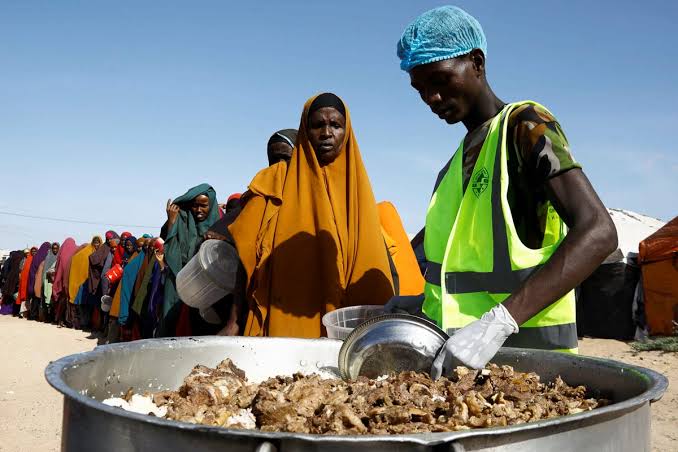Facebook Twitter (X) Instagram Somali Magazine - People's Magazine
Somalia is confronting a worsening humanitarian crisis as U.S. aid cuts under President Donald Trump exacerbate the impacts of climate change, conflict, and food insecurity. The abrupt reduction in foreign assistance has left millions vulnerable, with more than 4.5 million people expected to face hunger and food shortages before the end of June.
The country’s challenges are compounded by the effects of climate change. Between 2020 and 2023, Somalia experienced repeated droughts due to failed rains, followed by severe flooding that displaced three million people. These climate shocks have devastated agriculture and livelihoods, leaving communities struggling to recover.
In 2022, international humanitarian assistance, amounting to approximately $2 billion, helped avert a catastrophic famine. However, the recent aid cuts have undermined these gains. The World Food Programme reports that two failed crop seasons last year resulted in harvests 45% below average yields, and a lack of rain this year has raised serious concerns for the upcoming planting season.
The Trump administration’s decision to slash foreign aid has had a significant impact on Somalia, a nation heavily reliant on external assistance. Approximately 70% of Somalia’s annual budget is funded by donor contributions. The aid cuts have disrupted critical programs, including food assistance, healthcare, and climate adaptation initiatives.
The United Nations has called for urgent climate change adaptation in Somalia, emphasizing the need for investment in resilience to protect livelihoods. However, the reduction in aid has hindered these efforts, leaving communities ill-equipped to cope with the increasing frequency and severity of climate-related disasters.
The situation in Somalia highlights the broader consequences of reduced international support for vulnerable nations facing the dual challenges of climate change and conflict. As the country grapples with the immediate threat of famine, the long-term prospects for stability and development remain uncertain without sustained and targeted assistance.

